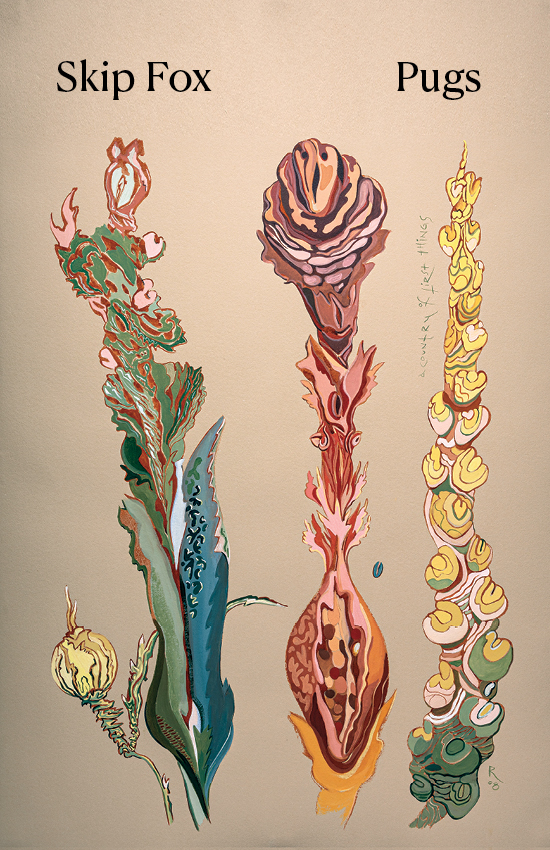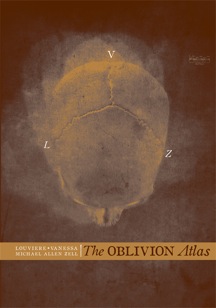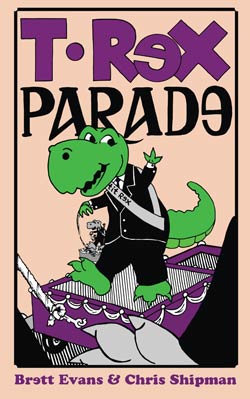Description
Skip Fox
Pugs
ISBN 978-1-956921-63-2
170 pages: $19.95
October, 2025
Pugs, set in southern Louisiana, is an adult novel about a dancing, talking pig. As Carlo Collodi’s The Adventures of Pinocchio (1883), on which Pugs is loosely based, the plot is picaresque, episodic, following Pugs through a series adventures with human companions, initially two counterfeiting grifters, Lem and Curtis, who are searching for an artistic phenomenon to impress Lem’s billionaire father, but on seeing Pugs dance, they realize his performance’s transformative, almost spiritual, power. The three set out on a series of adventures to make enough money to properly showcase Pug’s talent, believing his art might begin to divert humankind from its suicidal course. His adventures (often dancing in the presence of his muse, a purple haired girl) include dazzling worshipers at a revival/healing crusade, signaling odds to Lem at a casino’s blackjack table, dancing at a dog fight before a shootout between locals and a biker gang, fleeing wild dogs, escaping captivity though the roof of a motel, dancing with an imaginary ballerina (his muse) mid-hurricane, rescuing his human companions, and dancing before a battle between heavily armed bikers, locals, and federal officers on a small island in the Atchafalaya Basin. Lem, psychologically wounded in their last adventure, is brought back to health by a series of private dances Pugs performs for him and a few friends. But Pugs, haunted by the violence he has witnessed after his performances, is so disturbed he doesn’t think he will be able to dance before an audience again, but allows it might be possible.
But the tale is in the telling.
Praise for Skip Fox and Pugs
Pugs opens a portal through Louisiana’s wavering heat, rendered in Fox’s signature style—both gracefully hyperbolic and tenderly human. A Hitchcockian fable that luxuriates in its indelible telling.
—David Kuhnlein, author of Die Closer to Me
Offering up insights “wanting to know his thoughts on art (The answer’s in the activity) and life” from a dancing pig named Pugs (“a name made for the stage… simple, short and sweet.”) Skip Fox threads a needle: “Pugs needed little convincing. As far as he was concerned, he was one of them. They [he and his human companions] were in this together. He’d do whatever they said, especially since they treated him as an equal.” Raising echoes of Orwell’s Animal Farm, “All animals are equal, but some animals are more equal than others.” But don’t overthink it. –
—Patrick James Dunagan, author of After the Banished
Our hippest phenomenologist, Swiftian, ontologist of frass, Sadean, high priest of proctological slapstick, sorrowful, terribly funny, a celebrant of Eros, the enemy of oblivion and diminishing returns—Skip Fox is of the tribe of Cronenberg, Lautreamont, Jodorowsky, Hunter S. Thompson; he is the Keeper of Poe’s raven and he is a master. wired to zone is unique in the history of the novel.
—Rikki Ducornet
With wired to zone Skip Fox has crossed tech-noir with bio-punk to create something maddened and strange and utterly new, a kind of blue acid noir licking the flaps of its own pockets and not to be denied. A gorgeous and lurching dizziness of a novel.
—Brian Evenson
Welcome to the nuance parade of corporate genetic leftovers where “freaked and fractured thinking” reigns supreme. With “a pathos past all measure” amusing the muses is as primary to Skip Fox as smoking or breathing. Inside his “chemical stew” we’re always almost nearly there and he arrives just in time, lurking at the threshold, leading us while being led.
—Micah Ballard
Praise writing that tends exuberantly to its composition, enriched by long study and practice, language all generative actuality; characters that exist through act, rather than to represent actors; story not as plot but match with the Deep Blue of fatal logic; a hero stretched from Apuleius to Chandler, as well as two distressed demoiselles: one reincarnates Phoebe Zeitgeist, the other blends Cloned Dolly and Marilyn Monroe. Somebody is threatening zero, nothing, loss of neutrality, the ultimate MacGuffin. Passion of the digital. Them versus whatever we think we are. Praise this book by reading it. You will find it novel.
—Brian Richards










Reviews
There are no reviews yet.